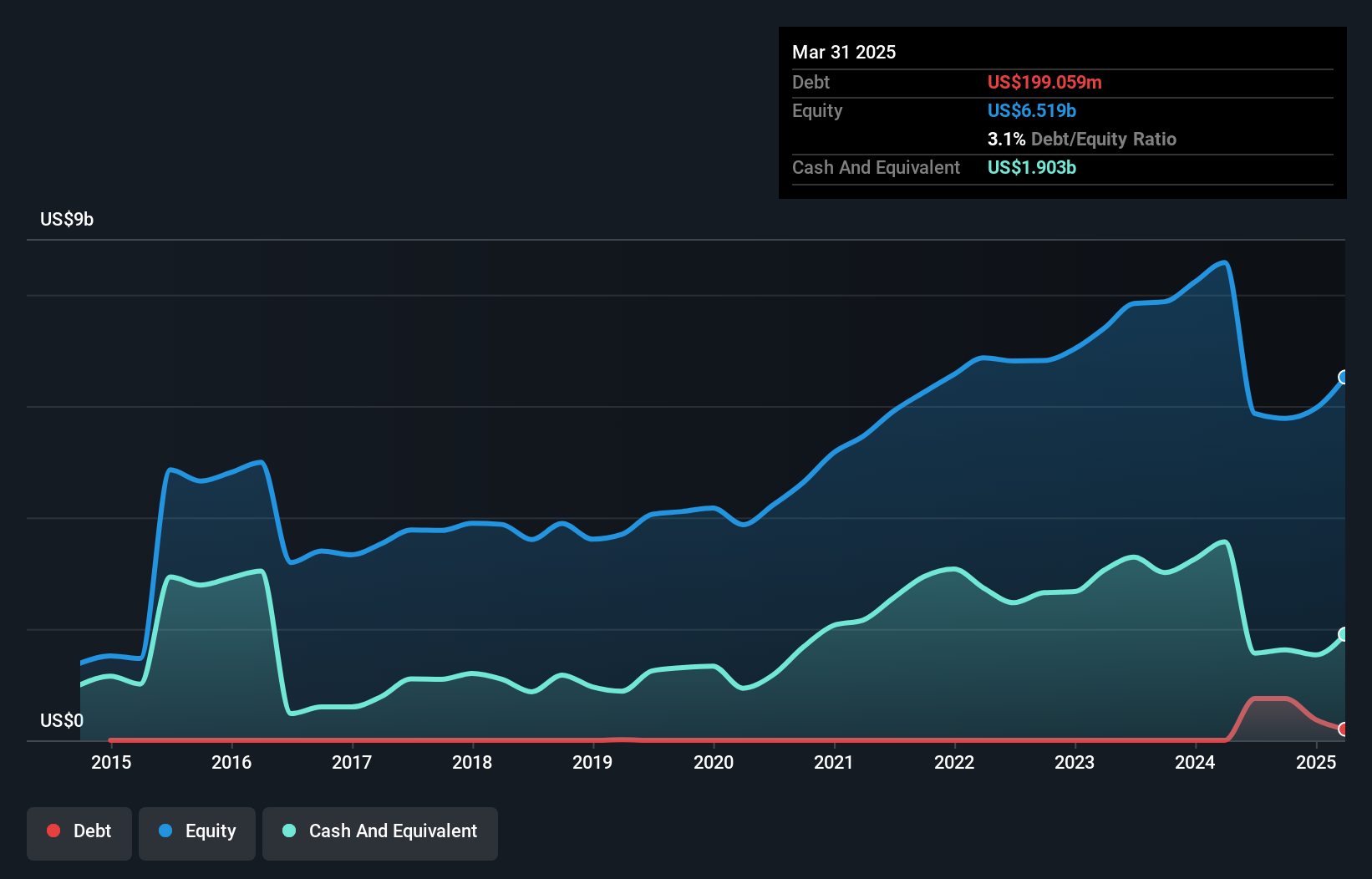These 4 Measures Indicate That Monster Beverage (NASDAQ:MNST) Is Using Debt Safely
David Iben put it well when he said, 'Volatility is not a risk we care about. What we care about is avoiding the permanent loss of capital.' So it might be obvious that you need to consider debt, when you think about how risky any given stock is, because too much debt can sink a company. We note that Monster Beverage Corporation (NASDAQ:MNST) does have debt on its balance sheet. But the real question is whether this debt is making the company risky.
When Is Debt Dangerous?
Debt is a tool to help businesses grow, but if a business is incapable of paying off its lenders, then it exists at their mercy. Part and parcel of capitalism is the process of 'creative destruction' where failed businesses are mercilessly liquidated by their bankers. However, a more common (but still painful) scenario is that it has to raise new equity capital at a low price, thus permanently diluting shareholders. By replacing dilution, though, debt can be an extremely good tool for businesses that need capital to invest in growth at high rates of return. When we think about a company's use of debt, we first look at cash and debt together.
What Is Monster Beverage's Net Debt?
The image below, which you can click on for greater detail, shows that at March 2025 Monster Beverage had debt of US$199.1m, up from none in one year. But it also has US$1.90b in cash to offset that, meaning it has US$1.70b net cash.

How Healthy Is Monster Beverage's Balance Sheet?
Zooming in on the latest balance sheet data, we can see that Monster Beverage had liabilities of US$1.23b due within 12 months and liabilities of US$482.2m due beyond that. Offsetting this, it had US$1.90b in cash and US$1.35b in receivables that were due within 12 months. So it can boast US$1.55b more liquid assets than total liabilities.
This surplus suggests that Monster Beverage has a conservative balance sheet, and could probably eliminate its debt without much difficulty. Succinctly put, Monster Beverage boasts net cash, so it's fair to say it does not have a heavy debt load!
View our latest analysis for Monster Beverage
Monster Beverage's EBIT was pretty flat over the last year, but that shouldn't be an issue given the it doesn't have a lot of debt. There's no doubt that we learn most about debt from the balance sheet. But ultimately the future profitability of the business will decide if Monster Beverage can strengthen its balance sheet over time. So if you want to see what the professionals think, you might find this free report on analyst profit forecasts to be interesting.
But our final consideration is also important, because a company cannot pay debt with paper profits; it needs cold hard cash. Monster Beverage may have net cash on the balance sheet, but it is still interesting to look at how well the business converts its earnings before interest and tax (EBIT) to free cash flow, because that will influence both its need for, and its capacity to manage debt. Over the most recent three years, Monster Beverage recorded free cash flow worth 74% of its EBIT, which is around normal, given free cash flow excludes interest and tax. This free cash flow puts the company in a good position to pay down debt, when appropriate.
Summing Up
While it is always sensible to investigate a company's debt, in this case Monster Beverage has US$1.70b in net cash and a decent-looking balance sheet. And it impressed us with free cash flow of US$1.8b, being 74% of its EBIT. So is Monster Beverage's debt a risk? It doesn't seem so to us. Another factor that would give us confidence in Monster Beverage would be if insiders have been buying shares: if you're conscious of that signal too, you can find out instantly by clicking this link.
If you're interested in investing in businesses that can grow profits without the burden of debt, then check out this free list of growing businesses that have net cash on the balance sheet.
Have feedback on this article? Concerned about the content? Get in touch with us directly. Alternatively, email editorial-team (at) simplywallst.com.
This article by Simply Wall St is general in nature. We provide commentary based on historical data and analyst forecasts only using an unbiased methodology and our articles are not intended to be financial advice. It does not constitute a recommendation to buy or sell any stock, and does not take account of your objectives, or your financial situation. We aim to bring you long-term focused analysis driven by fundamental data. Note that our analysis may not factor in the latest price-sensitive company announcements or qualitative material. Simply Wall St has no position in any stocks mentioned.
 Wall Street Journal
Wall Street Journal